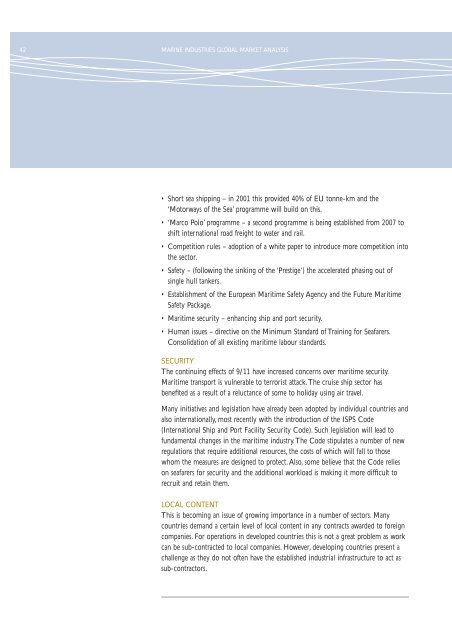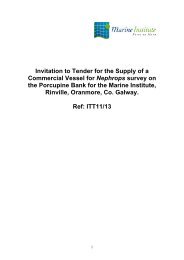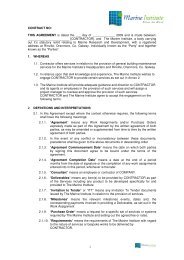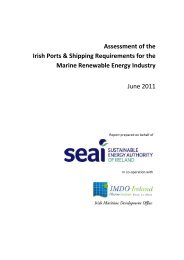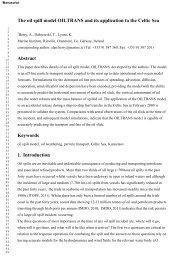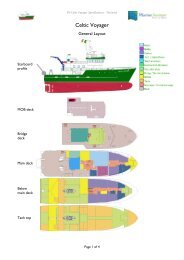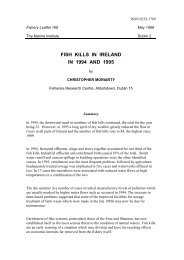Marine Industries Global Market Analysis - Marine Institute
Marine Industries Global Market Analysis - Marine Institute
Marine Industries Global Market Analysis - Marine Institute
You also want an ePaper? Increase the reach of your titles
YUMPU automatically turns print PDFs into web optimized ePapers that Google loves.
42 MARINE INDUSTRIES GLOBAL MARKET ANALYSIS<br />
• Short sea shipping – in 2001 this provided 40% of EU tonne-km and the<br />
‘Motorways of the Sea’ programme will build on this.<br />
• ‘Marco Polo’ programme – a second programme is being established from 2007 to<br />
shift international road freight to water and rail.<br />
• Competition rules – adoption of a white paper to introduce more competition into<br />
the sector.<br />
• Safety – (following the sinking of the ‘Prestige’) the accelerated phasing out of<br />
single hull tankers.<br />
• Establishment of the European Maritime Safety Agency and the Future Maritime<br />
Safety Package.<br />
• Maritime security – enhancing ship and port security.<br />
• Human issues – directive on the Minimum Standard of Training for Seafarers.<br />
Consolidation of all existing maritime labour standards.<br />
SECURITY<br />
The continuing effects of 9/11 have increased concerns over maritime security.<br />
Maritime transport is vulnerable to terrorist attack.The cruise ship sector has<br />
benefited as a result of a reluctance of some to holiday using air travel.<br />
Many initiatives and legislation have already been adopted by individual countries and<br />
also internationally, most recently with the introduction of the ISPS Code<br />
(International Ship and Port Facility Security Code). Such legislation will lead to<br />
fundamental changes in the maritime industry.The Code stipulates a number of new<br />
regulations that require additional resources, the costs of which will fall to those<br />
whom the measures are designed to protect. Also, some believe that the Code relies<br />
on seafarers for security and the additional workload is making it more difficult to<br />
recruit and retain them.<br />
LOCAL CONTENT<br />
This is becoming an issue of growing importance in a number of sectors. Many<br />
countries demand a certain level of local content in any contracts awarded to foreign<br />
companies. For operations in developed countries this is not a great problem as work<br />
can be sub-contracted to local companies. However, developing countries present a<br />
challenge as they do not often have the established industrial infrastructure to act as<br />
sub-contractors.


